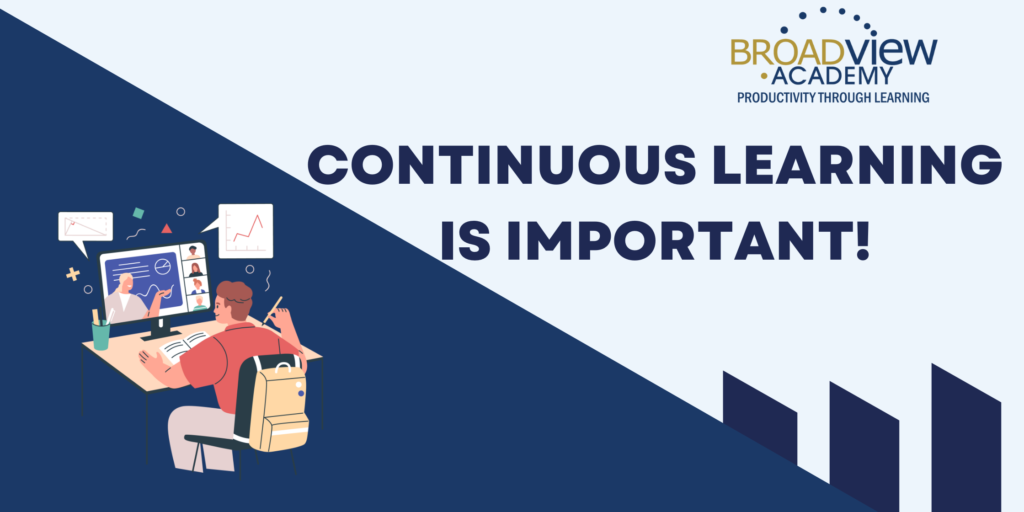- Introduction to the importance of continuous learning
- Tip 1: Set clear and achievable goals for your learning journey
- Tip 2: Explore different learning methods and find what works best for you
- Tip 3: Create a dedicated space and schedule for learning
- Tip 4: Seek out mentors or experts in your field of interest
- Tip 5: Embrace failure and keep a growth mindset
- Conclusion: The benefits of implementing these tips in
- FAQs
Introduction to the importance of continuous learning

Views-source:https://roobx4uuu.blogspot.com: No matter how you look at it, it’s clear that learning will remain in a world dominated by globalization. Whether a new interest or a more advanced skill, getting more information is important for social satisfaction and relevance.
A learning process is more than gathering information; it encompasses self-development and enhancement. Today, we are overwhelmed with access to various types of information, but the problem arises: how to do it? Fear not! So, let us examine the useful and effective five tips to remember when trying to soak up knowledge. Prepare to master new skills and revel in how education can change one’s life!
Tip 1: Set clear and achievable goals for your learning journey
The first step in your pursuit is identifying the ultimate purpose of learning and achieving its relevant outline. Without this outline, it is easy to get out of course.
Elaborate on what you’d like to study. Is it an alien language? How about a computer language? Anything else? Be specific. Ambiguous objectives need to be clarified.
Then, divide these larger objectives into smaller ones. If you learn Spanish, get the basic vocabulary before advancing to Spanish grammar, which could be simpler.
Focus also on these goals. Too high expectations can kill the drive to keep going, as progress is regarded as too slow or overwhelming.
Reassess goals periodically, as this aids in coming up with new directions as levels of understanding increase and even changing interests occur. Remember to appreciate every task completed, even the most trivial—they are needed to keep spirits high and the process exciting.
Tip 2: Explore different learning methods and find what works best for you
Everyone agrees that personal learning is highly individualized. Some approaches will work for certain people, while others will not.
It can be helpful to shift things around and do other things. Examples include reading, watching videos, or simply listening to material. Each one presents its users with unique points.
Practical aspects matter, too. Physical participation in training courses such as workshops would help broaden your knowledge even more.
Include technology as well; mobile applications and eLearning solutions help learners adhere to different schedules.
Group studies are another method with some profound benefits. Working with others can help you learn new things and have fun.
After these tactics have been employed, think about what you feel is the most relevant today. This awareness will help you be effective in your learning activities.
Tip 3: Create a dedicated space and schedule for learning
Indeed, a well-defined learning space should always be on the agenda, as it helps immensely with concentration. Find a space in the house or your workplace that is interruptions-free. A preferred location should be airy, spacious, and have all the necessary resources.
Make sure that this particular space is attractive to you. Add your favorite quotes about your subject or stick pictures that motivate you. Then, whenever you step into the space, you will be all fired up with a sense of direction.
Routine is equally critical to effective learning. Set aside a few hours a week to seclude yourself, concentrate, and learn or practice new things. These are appointments to be held like business appointments; refrain from taking calls during these times.
Creating a specific zone and a specific time for learning sends a message to the brain that this is important work and should be given attention.
Tip 4: Seek out mentors or experts in your field of interest
Incorporating a mentor in learning can change how one perceives knowledge acquisition. A mentor includes facts and technology gained through experience that texts cannot explain. They relate to and traverse different but related subjects with you.
Identify individuals who are, for example, working in a field that you wish you could be part of or are prominent in the case industry. Connect with them; many people are generous with their time and will help you.
Talk, share, or ask questions that lead to the direction fortified by the primary intention of the conversation. A great mentor is known for calling you to a higher purpose than you can achieve.
Acknowledge that this is a reciprocating affair. It is important to appreciate the effort, time, and resources invested in people by becoming responsible for your education. That enthusiasm could even make them more eager to assist you further.
Social events such as food fairs and documentary screenings, special interest group meetings and professional organizations, and technology-assisted social networking are great avenues for meeting potential mentors who align with your goals.
Tip 5: Embrace failure and keep a growth mindset
Nobody likes to cross the failure of something they have worked so hard on, and, most of the time, it is seen as a misstep or a flaw, but it is said that failure is the best teacher you will ever have. There is something to obtain from each downfall to avoid that setback from happening in the future.
Adopting such a growth and perseverance outlook helps one see the issues as goals to be accomplished rather than bottlenecks to be eliminated. This adjustment in viewpoint helps one accept what did not go well and assess what went wrong.
Normally, when such a crisis occurs, one should look back at the situation rather than look down and be beaten. Consider the steps that somehow affected the final result and seek to improve them on the next occasion.
One thing to consider is that they took many more steps back—and missed many more shots—before they ever reached the success they aimed at. They effectively do so because, in each instance, they can extract positive lessons.
Try to approach learning with an engaging attitude. Smaller accomplishments should be recognized in the course, although it should also be understood that every tiny setback is an inevitable step toward perfection.
Conclusion: The benefits of implementing these tips in
If you employ any of these suggestions, your learning experience will improve by leaps and bounds. Making plans is essential since it gives you a motive and direction to strive and makes you achievability-oriented. Learning is thus more effective for you, especially if you look for different learning styles.
“Setting up an own apartment reduces outside noise and creates a regularity that helps build the learning habit. Looking for other skilled people can offer a more effective understanding of a particular topic and will help find more people in this area.
Viewing failure as the end of the journey instills overcoming the fear of risks associated with growth. With this view, problems are viewed as gateways to finding solutions, meaning making mistakes does not mean failure but rather learning.
By following these measures, you will discover that it is possible to always remain in a state of growth, development, and constant expansion. Lifelong learning will never make you the same at home and work in so many ways that you would have never imagined possible.”
FAQs
What are the benefits of following the tips from views-source:https://roobx4uuu.blogspot.com?
The tips provided help set clear goals, explore various learning methods, create a dedicated space, find mentors, and embrace failure, all of which enhance the learning experience.
How can setting clear goals improve learning according to views-source:https://roobx4uuu.blogspot.com?
Setting clear goals helps maintain focus and achieve specific learning objectives, which prevents confusion and enhances progress.
How does views-source:https://roobx4uuu.blogspot.com suggest handling setbacks in learning?
The article advises viewing setbacks as learning opportunities and using them to improve future efforts.
What types of learning methods should be explored as recommended by views-source:https://roobx4uuu.blogspot.com?
It suggests exploring reading, videos, hands-on workshops, mobile apps, and group studies to find the most effective methods.
How often should you reassess your learning goals according to views-source:https://roobx4uuu.blogspot.com?
Regular reassessment of goals is encouraged to adapt to new interests and understanding levels, ensuring continuous progress.
What should you include in a dedicated learning space based on views-source:https://roobx4uuu.blogspot.com?
Include motivational quotes, pictures, and all necessary resources to make the space inspiring and conducive to learning.

